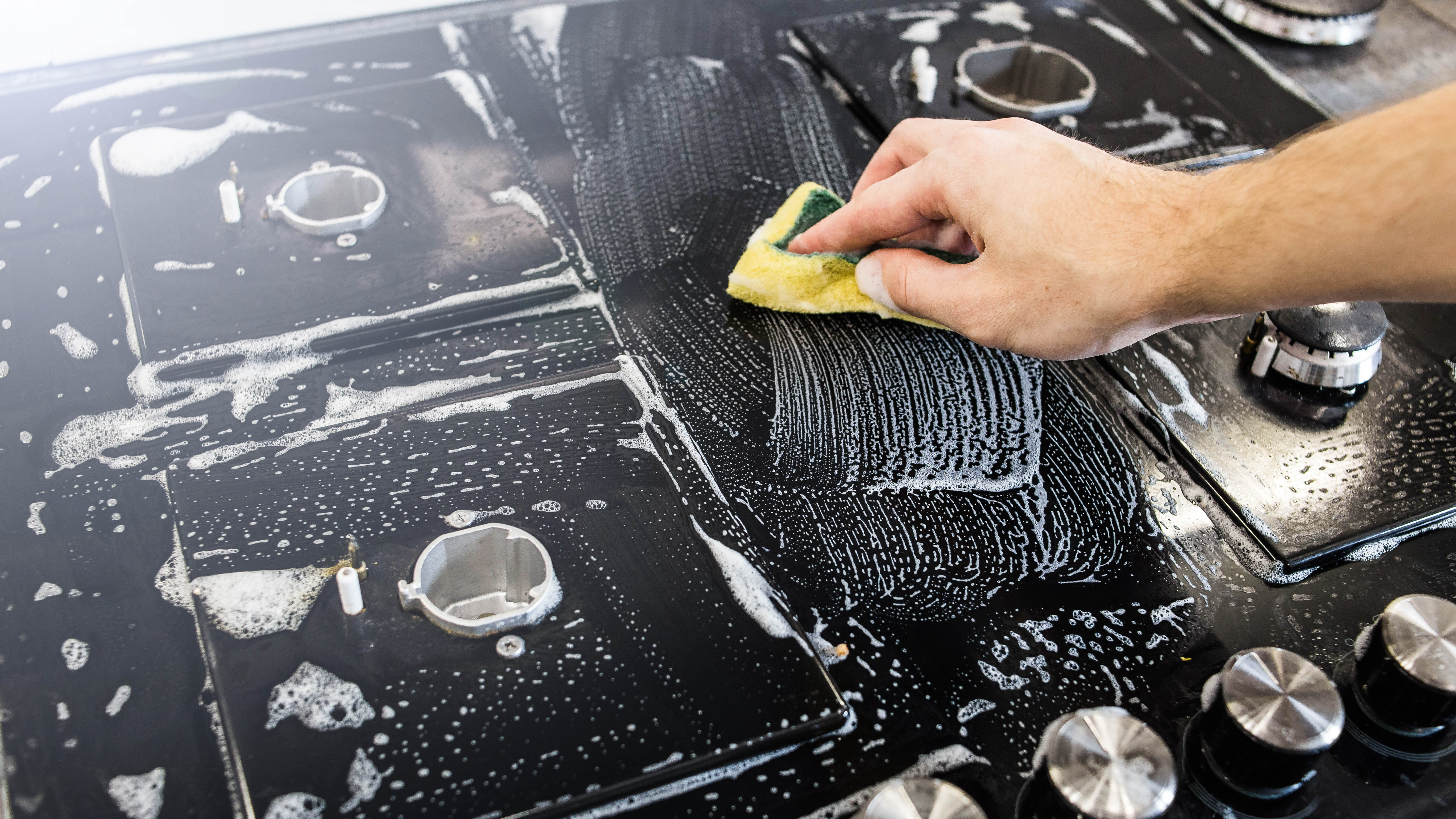Tonal vs. Mirror: Which wall workout machine wins?
Which compact exercise machine is best for workouts in small spaces?
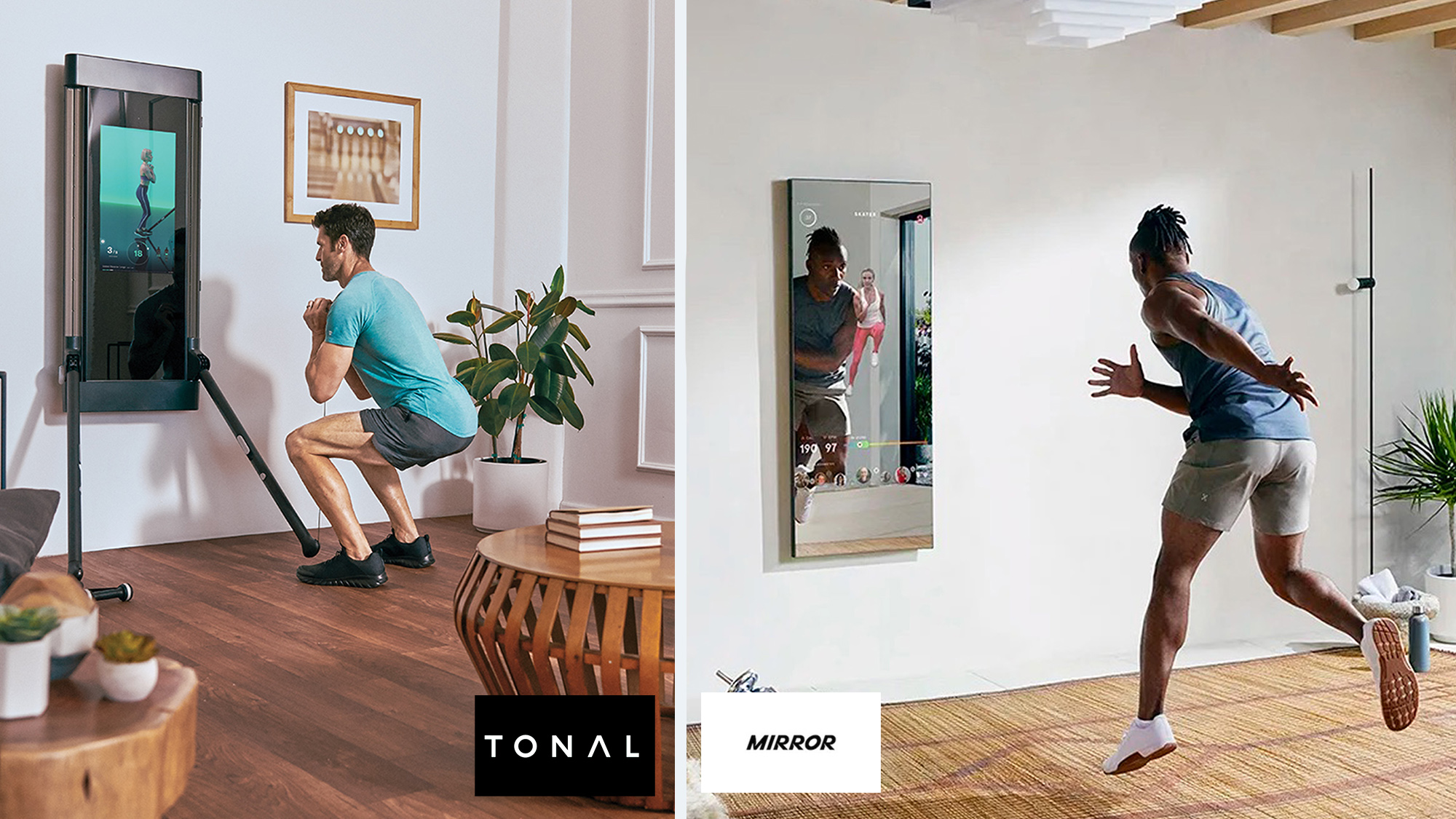
If you have limited space — maybe you live in, say, an industrial loft in the middle of a large city, like I do — you might be weighing the Tonal vs. Mirror as a low-profile alternative to one of the best exercise bikes.
Even if you live in a studio apartment you probably have room for something that takes up no floor space (or almost none). The Tonal and the Mirror take up less space than a folding treadmill (that you never have to unfold), so they're pretty intriguing for anyone who doesn't have half a garage to dedicate to fitness.
Although the Tonal and the Mirror look sort of similar — they're both wall-mounted devices with vertical screens — they're very different machines. The Tonal is a high-tech cable machine with a digital weight system, while the Mirror is a dedicated workout station for streaming live and on-demand workouts, as well as getting individual coaching from personal trainers.
When you’re deciding between the Tonal vs. Mirror, the one that makes most sense for you will depend on how you like to work out — the Tonal is very strength-focused, while the Mirror leans toward cardio and group fitness.
- Best exercise bikes
- For indoor runners: Best treadmills
- Tempo Studio review: Our favorite workout mirror
| Row 0 - Cell 0 | Tonal | Mirror |
| Price | $2995 + $250 shipping | $1495 + $250 shipping |
| Subscription fees | $49/month | $39/month |
| Size | 50.9 x 21.5 x 5.25 inches | 52.6 x 21.1 x 1.7 inches |
| Screen size | 24 inches | 40 inches |
| Weight | 150lbs | 70lbs |
Tonal vs. Mirror: Hardware
The Tonal is very physically interactive: It has two adjustable cable arms, each of which provides up to 100 pounds of electromagnetic resistance (the arms can be combined for up to 200 pounds of resistance). Like regular cable machines, the Tonal has swappable attachments — Tonal sells its own attachments, including Bluetooth-enabled "smart" handles and a "smart" bar, but it also sells its proprietary T-locks for users who want to attach third-party cable machine attachments.
The Tonal also has a 24-inch vertical touchscreen that shows stats, workouts, and lifting instruction; there's also a built-in webcam, mic, and speakers, as well as Bluetooth and Wi-Fi.
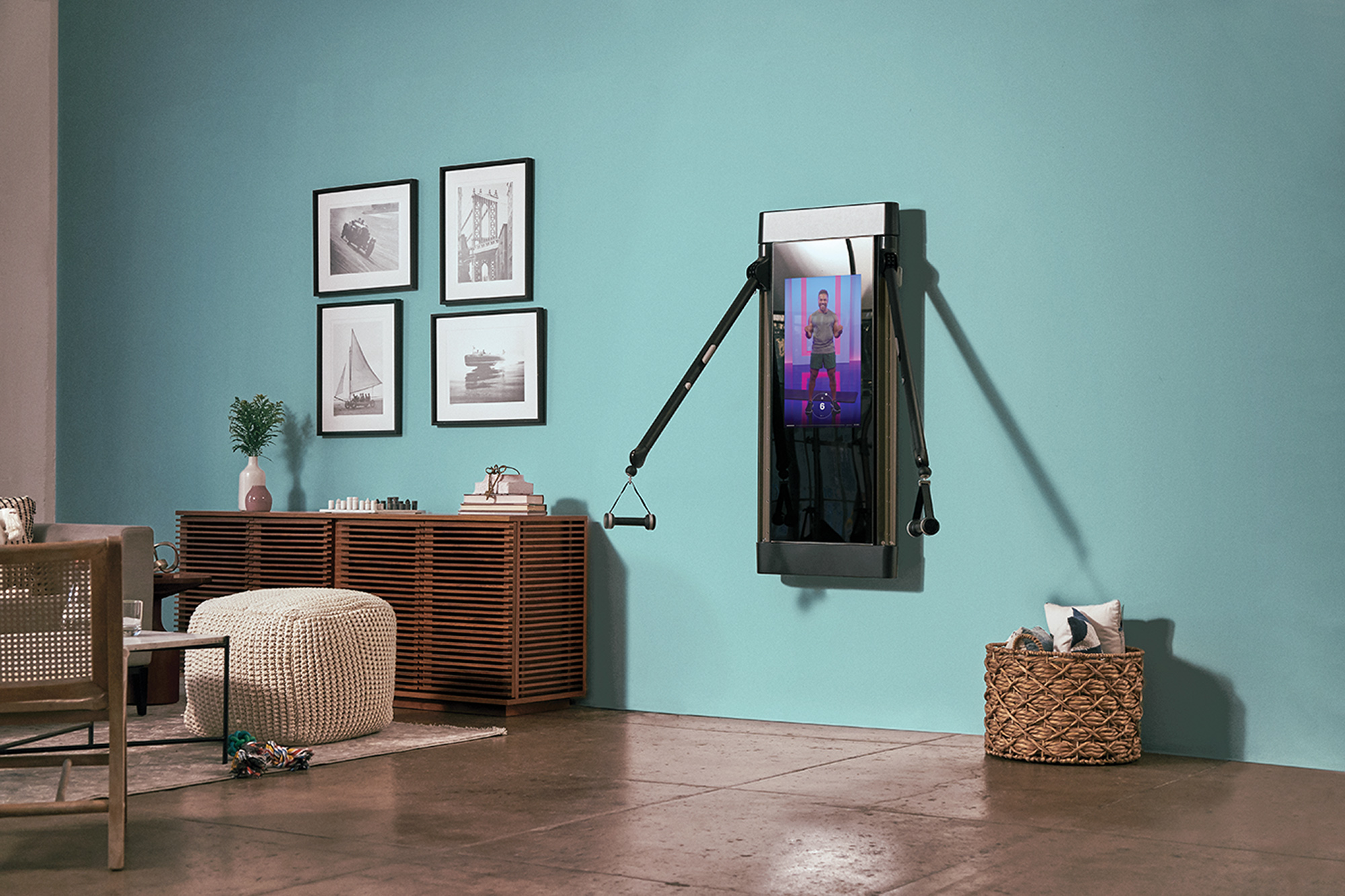
The Tonal takes up very little space when you're not using it: It's just over five inches thick — thicker than most things you mount on your wall, but I had no problem putting it behind a closet door. It does have those movable arms, though, so you do need some clearance — Tonal recommends a seven-foot cube around the machine, but you can install it in a smaller space depending on the circumstances.
Sign up to get the BEST of Tom's Guide direct to your inbox.
Get instant access to breaking news, the hottest reviews, great deals and helpful tips.
There's a bigger barrier than space, though: The Tonal can't be installed just anywhere. It must be wall-mounted and it must be professionally installed, and it can't be installed on just any wall. You can read the detailed requirements in Tonal's knowledge base, but for the most part you'll want a wall with wood or metal studs placed 16 - 24 inches apart.
The Mirror, on the other hand, is not at all physically interactive — it doesn't even have a touchscreen. It has a 40-inch vertical screen, which is controlled by a companion app on your phone and is invisible when not in use, plus a built-in webcam, a mic, speakers, and Bluetooth and Wi-Fi. The Mirror is a fitness tool the way a personal trainer is a fitness tool — it motivates you to work out, tells you what to do, and, for an extra fee, will even connect you with an actual personal trainer.
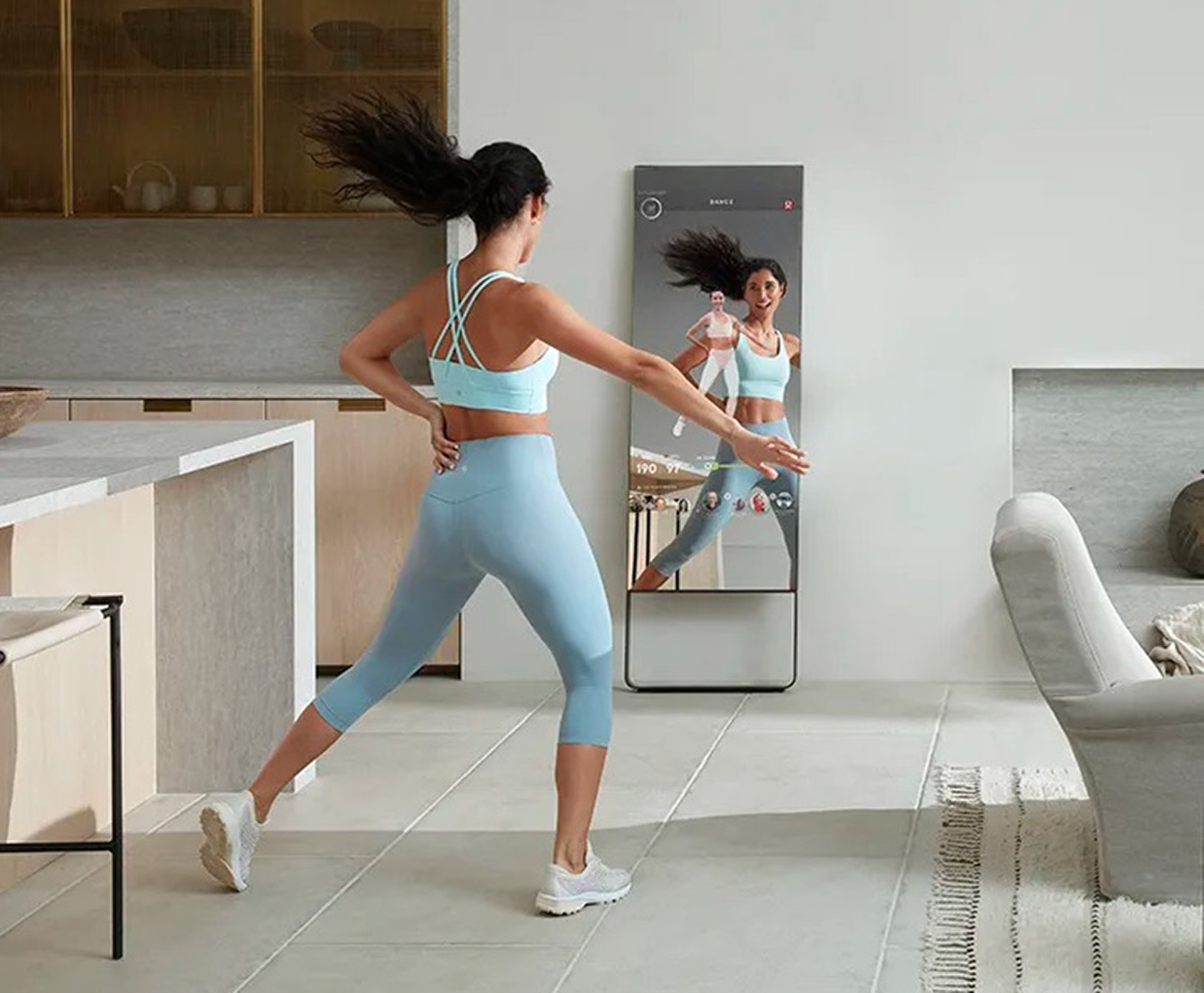
The Mirror is less than two inches thick — it takes up about as much space as, well, a mirror. Unlike the Tonal, the Mirror doesn't have any strict space requirements beyond the space it takes up; it also doesn't need to be mounted on a wall — if you're truly limited for space, you could always move it to a more open area for workouts (though it does weigh about 70 pounds).
The Mirror is definitely a much better option for renters, because it has an floor-standing option and because it can be moved. If you have the Tonal and you decide to move, you'll need to have Tonal's relocation service come uninstall, move, and reinstall your Tonal — assuming, of course, that you move somewhere with a Tonal-compatible wall. Oh, and the relocation service isn't free, either — it starts at around $200 and goes up depending on the details of the move.
Tonal vs. Mirror: Content
Both the Tonal and the Mirror require that you purchase a one-year subscription to their streaming services, after which you can continue to subscribe monthly or you can choose to not subscribe at all. Tonal's subscription costs $49/month and Mirror's costs $39/month; both have companion apps where you can also access content even if you're not using your device.
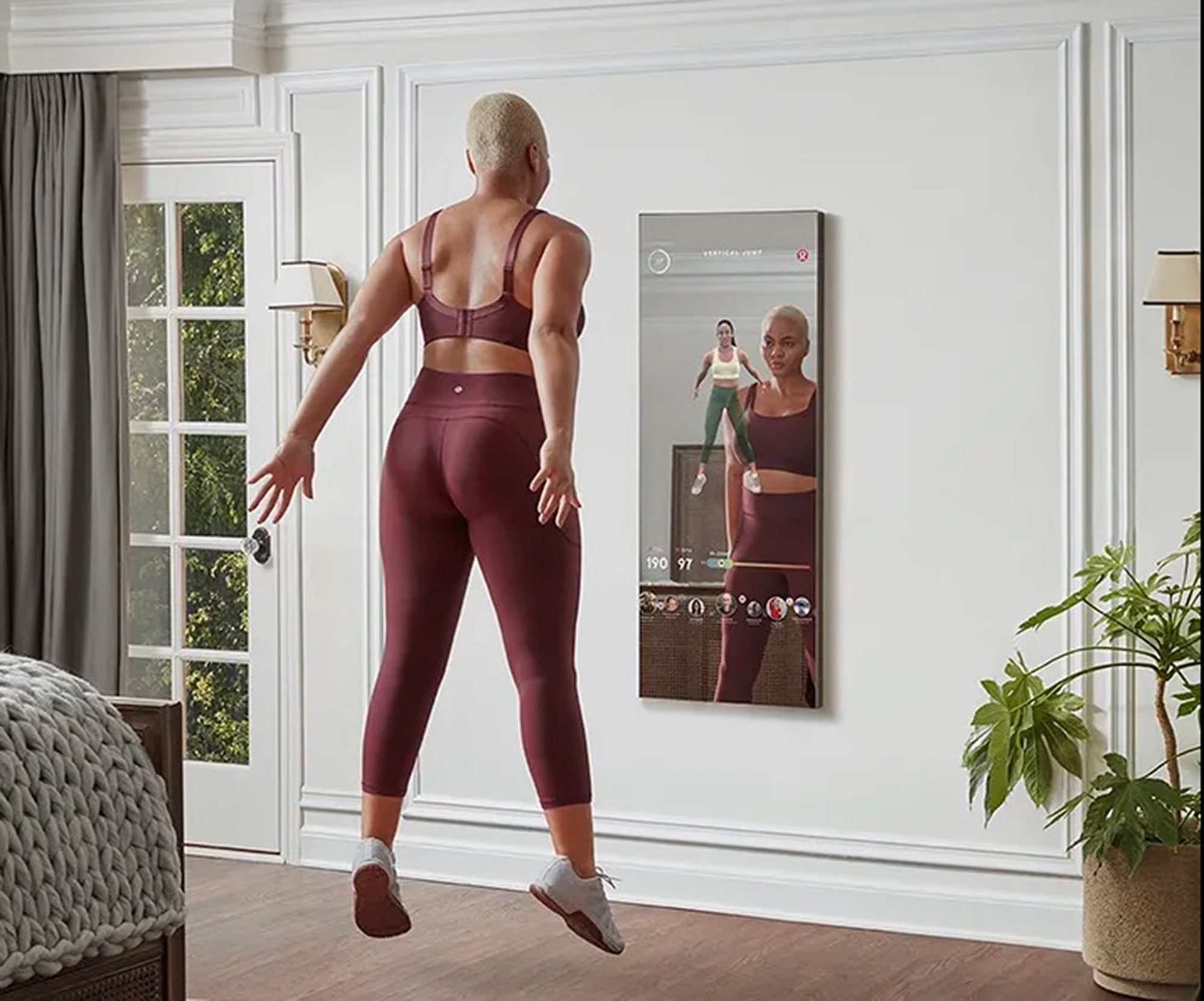
The Mirror is basically a fancy workout-video-watching station — unsurprisingly, it is very robust in terms of content. The Mirror has thousands of workouts over a variety of categories — cardio bootcamp, dance cardio, yoga, barre, pilates, strength, prenatal and postnatal, etc. The content is a little cardio-heavy, but there are still plenty of non-cardio options. You can also find workouts that incorporate various fitness equipment you have, such as dumbbells, resistance bands, a chair, etc.
In addition to on-demand content, Mirror offers around 15 - 20 live classes a day on a roughly east coast schedule. The Mirror connects with Bluetooth-enabled heart rate monitors (including the Apple Watch and Android watches that run Wear OS) so instructors can encourage you and you can compete against other users taking the same class. After a class is over, the Mirror invites you to take a post-workout selfie and post it for other participants to see.
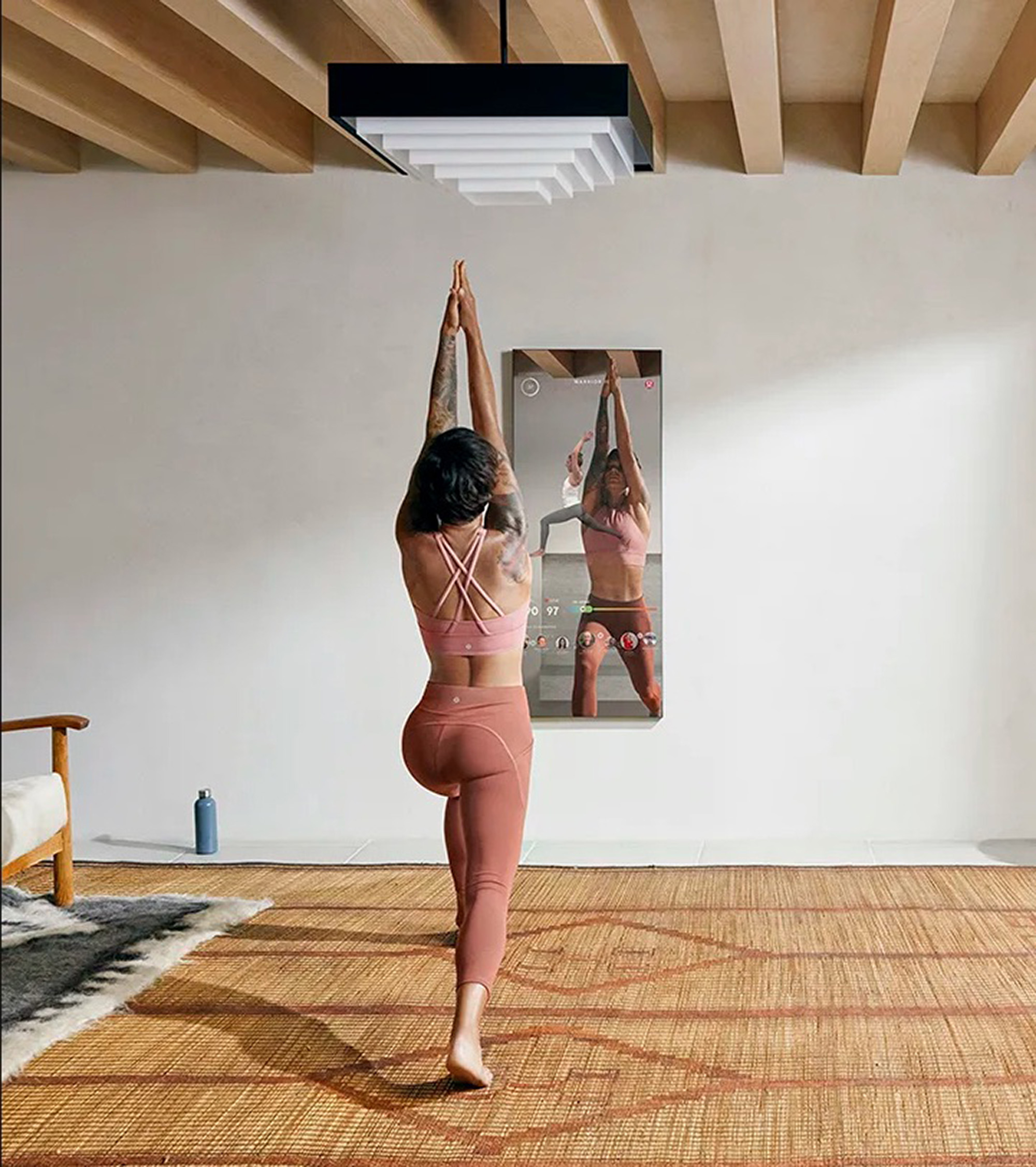
If you want even more personal attention, the Mirror offers personal training for an extra $40/30 minute session.
The Tonal is a weight machine first and a fitness screen second; accordingly, its content selection is quite a bit less impressive than the Mirror. Tonal does offer on-demand workout classes in a variety of categories — you'll find dance cardio, yoga, pilates, kickboxing, and strength workouts with and without resistance — just not as many options in each category. Tonal is currently testing both live classes and group workouts (in which you can invite friends who also have the Tonal to workout "with" you), but at the moment the schedule is pretty inconsistent.
The Tonal has a built-in webcam and mic for future personal training, but it doesn't currently offer personal training. You could argue that the Tonal has a built-in personal trainer, though, since the machine tracks various metrics such as movement speed, power, and consistency while you lift and offers real time feedback and coaching.
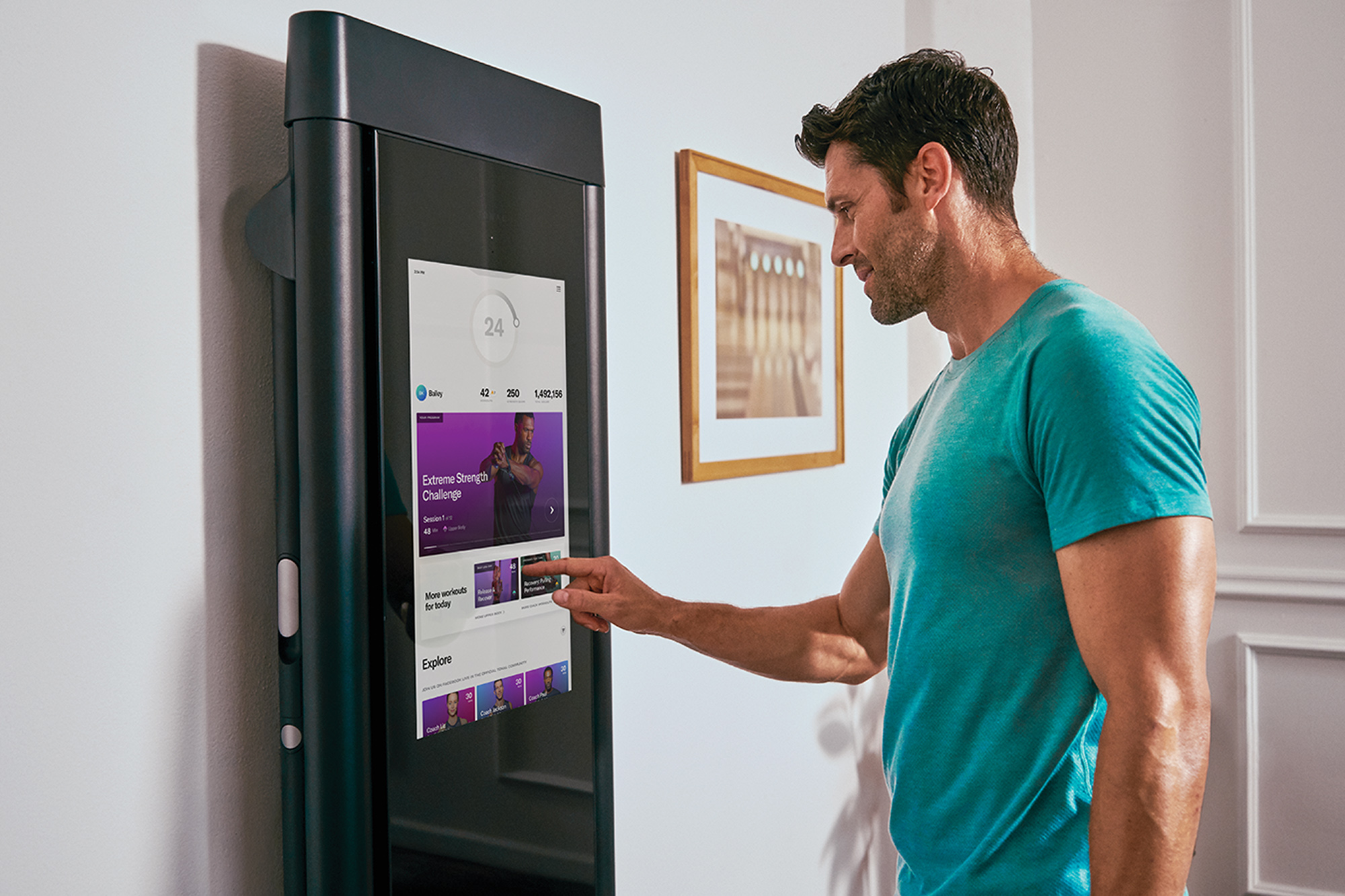
The Tonal does connect with Bluetooth heart rate monitors and Apple Watch, but doesn't support ANT+ or other fitness watches yet. It also doesn't use this information in live classes the way that the Mirror does — it's just for tracking heart rate and reps.
The Tonal can be used without a subscription: It still functions as a digital weight machine, though you will lose access to all of its content, including its library of lifts. Non-subscribers can use Tonal's "Basic Free Lift" mode, which lets you customize your lift by attachment type (handle, bar, rope), but doesn't offer any instruction on how to set up the Tonal or how to perform the lift. You won't be able to use any of the Tonal's advanced AI features, such as the dynamic weight modes (which simulate different types of lifting, such as lifting chains instead of an Olympic bar) and the spotter feature, nor will you be able to track anything except workout time and rep count.
The Mirror can also be used without a subscription… as a mirror.
Tonal vs. Mirror: Price
The Tonal is much more expensive than the Mirror, and the Mirror is already pretty expensive.
The Tonal is about as close as you're going to get to an all-in-one home gym, with both resistance and cardio training, and it doesn't come cheap. The Tonal alone costs $2,995, and this doesn't include the required professional installation, which is $250. It also doesn't include the monthly subscription fee ($49/month) or the smart accessories kit ($495).
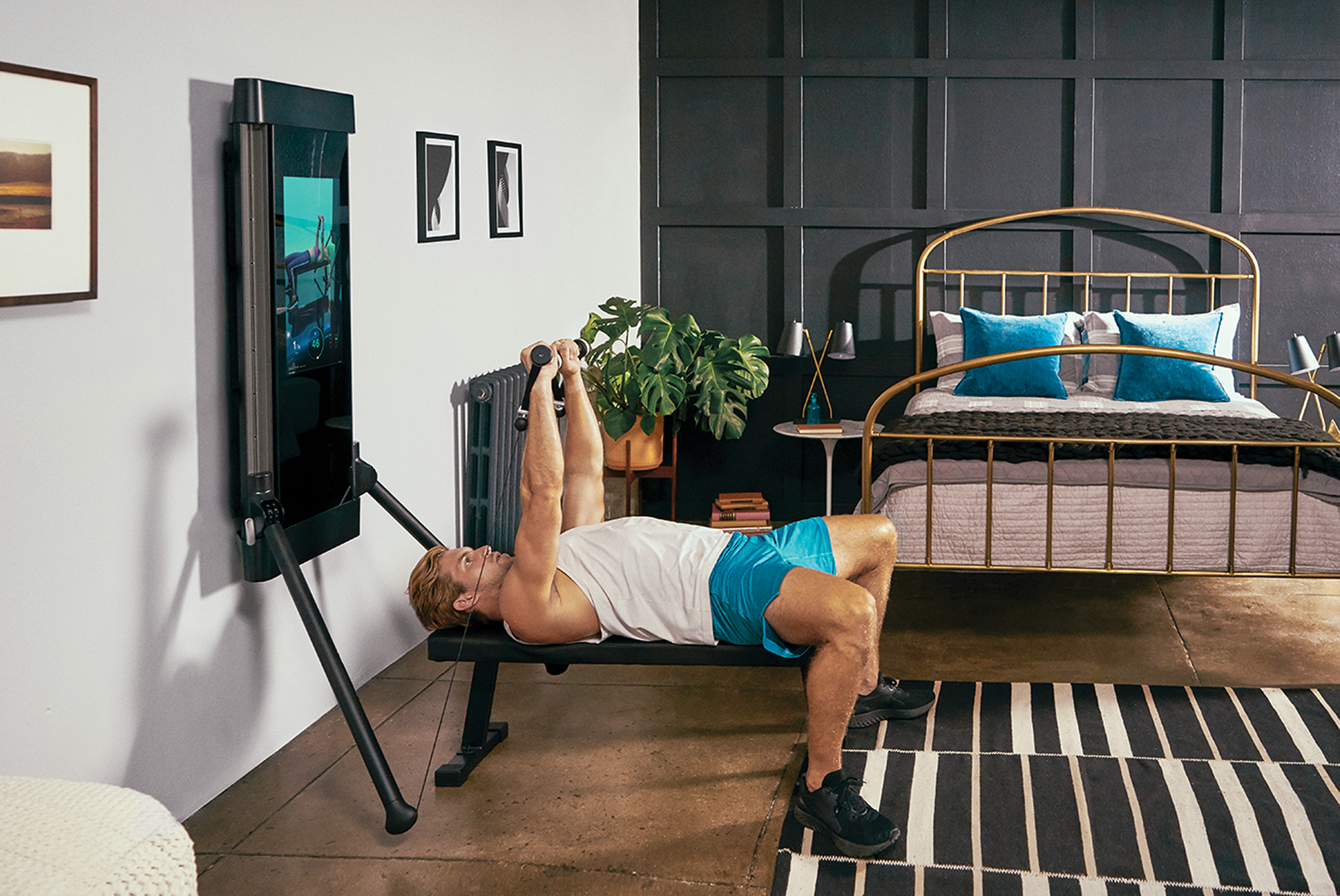
The smart accessories kit includes "smart" handles and a "smart" bar, both of which connect to the Tonal via Bluetooth for extra functionality (e.g. adjusting resistance). The kit is technically optional, but all users will need some form of these accessories to use the Tonal, so for most people it's basically required (it also comes with non-smart accessories, including a rope attachment, a workout bench, a fitness mat, and a foam roller).
The Mirror is less expensive, but it's still kind of pricey at $1,495. The company is currently waiving the $250 delivery and (optional) installation fee. The Mirror comes with mounting hardware and a floor stand, so you can choose how to install it (and switch it up later). You'll also need to pay an extra $39/month to subscribe to the Mirror's content, and an extra $100 if you want the Mirror "starter pack" of a chest-strap heart rate monitor and a set of resistance bands (this no longer comes bundled with the Mirror).
Tonal vs. Mirror: Bottom line
While it may seem that the Mirror comes out on top — it’s less expensive and easier to install — there's no obvious winner here. It really comes down to how you work out, and whether you have a wall that can accommodate the Tonal. The Tonal's digital weight system is impressive, but it tops out at 200 pounds. (If you’re a lifter, you’ll want to check out the best adjustable dumbbells too).
The Mirror doesn't offer any resistance training at all, but if you love boutique fitness studios and creative cardio workouts, it's got better content, a bigger, prettier screen, and it's also a lot sleeker and more attractive when you're not using it because it's just a mirror. The Tonal looks like some sort of industrial retail display, which, luckily, fits right in with my décor, but may not be for everyone.
Those who do more lifting will prefer the Tonal. However, the Mirror, with its lower price and subscription, slimmer profile, and greater content, has a much broader appeal.
Sarah is a hardware enthusiast and geeky dilettante who has been building computers since she discovered it was easier to move them across the world — she grew up in Tokyo — if they were in pieces. She's currently senior editor at our sister site Tom's Hardware and is best-known for trying to justify ridiculous multi-monitor setups, dramatically lowering the temperature of her entire apartment to cool overheating components, typing just to hear the sound of her keyboard, and playing video games all day "for work." She's written about everything from tech to fitness to sex and relationships, and you can find more of her work in PCWorld, Macworld, TechHive, CNET, Gizmodo, PC Gamer, Men's Health, Men's Fitness, SHAPE, Cosmopolitan, and just about everywhere else. In addition to hardware, she also loves working out, public libraries, marine biology, word games, and salads. Her favorite Star Wars character is a toss-up between the Sarlacc and Jabba the Hutt.

